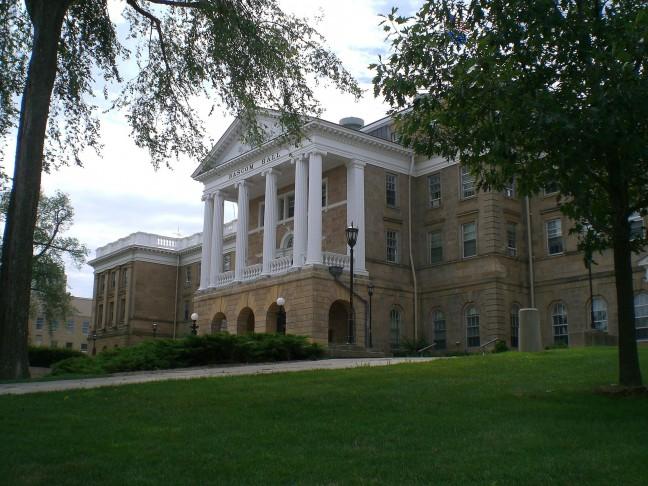Erin Barbato, director of the University of Wisconsin Law School’s Immigration Justice Clinic, spoke about her work with law students regarding detained immigrants seeking asylum from oppressive governments, domestic violence and gang violence.
Barbato is a founding member of Barbato Immigration Law, the Executive Director of, and a staff attorney at, the Community Immigration Law Center. She completed nonprofit work in Ecuador with impoverished and resettled refugee families.
Barbato said under current refugee policy asylum-seekers are not only not provided with an attorney under the sixth amendment, but are unnecessarily criminalized through legal proceedings.
“If you fled your country… do you think you’d have any financial means to hire an attorney? No,” Barbato said. “Even though you haven’t committed a crime, all you’ve done is sought protection under our laws, you are treated as if you’ve been convicted of a crime.”
Barbato also talked about UW’s “Law-In-Action” tradition, and how this practical approach allowed her students to travel to Dilley, Texas’s South Texas Family Residential Facility, which detains 2,400 women and children in need of volunteer attorneys. Barbato said these families are treated inhumanely.
“They’ve already crossed through countries to get to the southern border, then they’re arrested by a Custom Border Protection officer, put in what’s called a ‘perrera,’ or ‘doghouse,’ for 5-7 days,” Barbato said. “Oftentimes it’s just powerful for our students to say ‘We believe you. We trust you. We are here to help you.’”
Barbato said though there may not be a brick-and-mortar wall on the border, there is a wall of regulation through executive action.
“Through our history, the United States has accepted more refugees than any other country in the world,” Barbato said. “But, in the past two years, this has changed dramatically … The UN will call the U.S. and ask ‘Do you have any room for refugees?’ and our government right now is saying ‘no.’”
Barbato said due process and access to justice has been provided to some by the dedication of UW’s law students, she said they will continue to serve the immigrant community.


